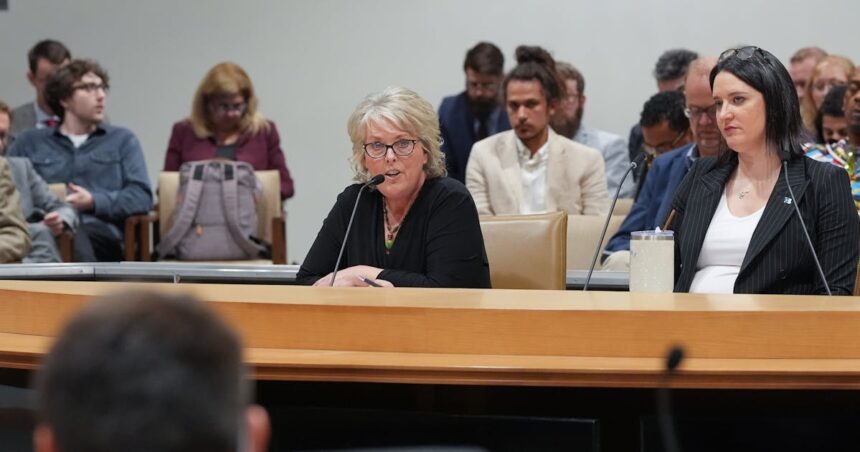On the chaotic final day of the 2024 legislative session, Minnesota lawmakers on Sunday approved a sweeping bill making changes to the state’s year-old law legalizing marijuana for recreational use. Many of the updates were backed by the state Office of Cannabis Management (OCM) ahead of the anticipated launch of Minnesota’s adult-use marijuana market next year. The cannabis bill now heads to Gov. Tim Walz’s desk for his signature. He is expected to sign it.
Here’s an overview of what’s in the bill.
New qualifications for social equity licenses
The following categories of applicants will now qualify for “social equity” cannabis business licenses:
- Individuals or close family members of individuals previously convicted of marijuana offenses
- All military veterans
- “Emerging farmers” who for at least three years have provided the majority of labor and management for a small farm (between $5,000 and $100,000 in sales in the previous year)
- Residents of high-poverty areas, including census tracts for which: the poverty rate was 20% or greater; the median family income was less than 80% of the statewide median (or for cities, less than 80% of the median family income for that metropolitan area); at least 20% of households receive Supplemental Nutrition Assistance Program (SNAP) benefits; or the population has a high score on the Centers for Disease Control and Prevention’s Social Vulnerability Index.
A head start for some social equity applicants
The bill establishes a pre-approval process for some social equity applicants who are awarded licenses in an early lottery (more on lotteries below) for a limited number of business licenses later this summer. Lottery winners will be able to begin preliminary work to set up their businesses with the security of knowing that if they fulfill the licensing requirements, they will receive a license when the OCM adopts rules for the adult-use cannabis market, expected in early 2025. Applicants who receive pre-approval must complete the licensing process within 18 months after rules are adopted, though the OCM may grant an extension of up to six months.
Social equity applicants who receive pre-approval for microbusiness, mezzobusiness or cultivator licenses and who comply with local codes and ordinances will be allowed to begin growing plants under the existing rules for medical cannabis cultivators to ensure a supply of cannabis is available when the market launches next year. Applicants who are pre-approved for other license types will be required to wait to begin operating until rules are in place.
Lotteries and limits for cannabis business licenses
The new legislation switches the process for awarding many cannabis business licenses from a points-based system to a “qualified lottery,” in which applicants who meet minimum qualifications — which include securing a property and developing a security plan — are chosen to receive licenses at random.
The Office of Cannabis Management must begin accepting applications for a pre-approval license lottery for social equity applicants by July 24. It must stop accepting pre-approval applications by Aug. 12. Additional lotteries for social equity and other licenses will be held later.
The bill sets caps for some license types, including cultivator, manufacturer, retailer and mezzobusiness licenses until July 1, 2026. There are no limits on other license types, including microbusinesses, though the OCM could place additional caps on these licenses in the future.
Municipal cannabis stores
Cities seeking to open a municipal cannabis store can be issued licenses without going through the lottery process. These licenses will not count against the OCM’s license caps or any limits on retail licenses that local governments may impose.
Hemp-derived market
The legislation speeds up the transfer of oversight of the state’s hemp-derived cannabinoid market from the Department of Agriculture to the OCM to July 1.
Businesses that sell hemp-derived THC beverages for on-site consumption will no longer be required to serve them in the original packaging, allowing for them to be sold on tap at bars and restaurants. These businesses will be required to post the information that is required to appear on the package for such beverages.
Medical cannabis program
Doctors may recommend cannabis for the treatment of any condition, not just the qualifying conditions approved by the Office of Medical Cannabis.
The bill eliminates medical cannabis cultivator, processor and retailer licenses. Adult-use cannabis businesses may apply for a new medical cannabis endorsement that allows the holder to grow, process or sell medical cannabis products, according to their license type.
Retailers must employ at least one licensed pharmacist or a holder of a new medical cannabis consultant certificate issued by the OCM to sell tax-exempt cannabis products to patients enrolled in the state medical marijuana program. Either licensed pharmacists or employees who complete the required training to be certified as a medical cannabis consultant may consult with patients about treatment plans.
The new bill allows patients enrolled in the state’s medical cannabis registry to designate a caregiver who may grow up to eight plants on their behalf. A patient who directs a caregiver to grow plants for them cannot grow plants themselves. A caregiver may grow plants for one patient only, though they may be designated as a caregiver to acquire or administer cannabis products for up to six patients. Caregivers may also grow up to eight plants for themselves, as permitted by law.
Correction:
An earlier version of this story mischaracterized medical cannabis combination business licenses. Such licenses already exist under current law.











